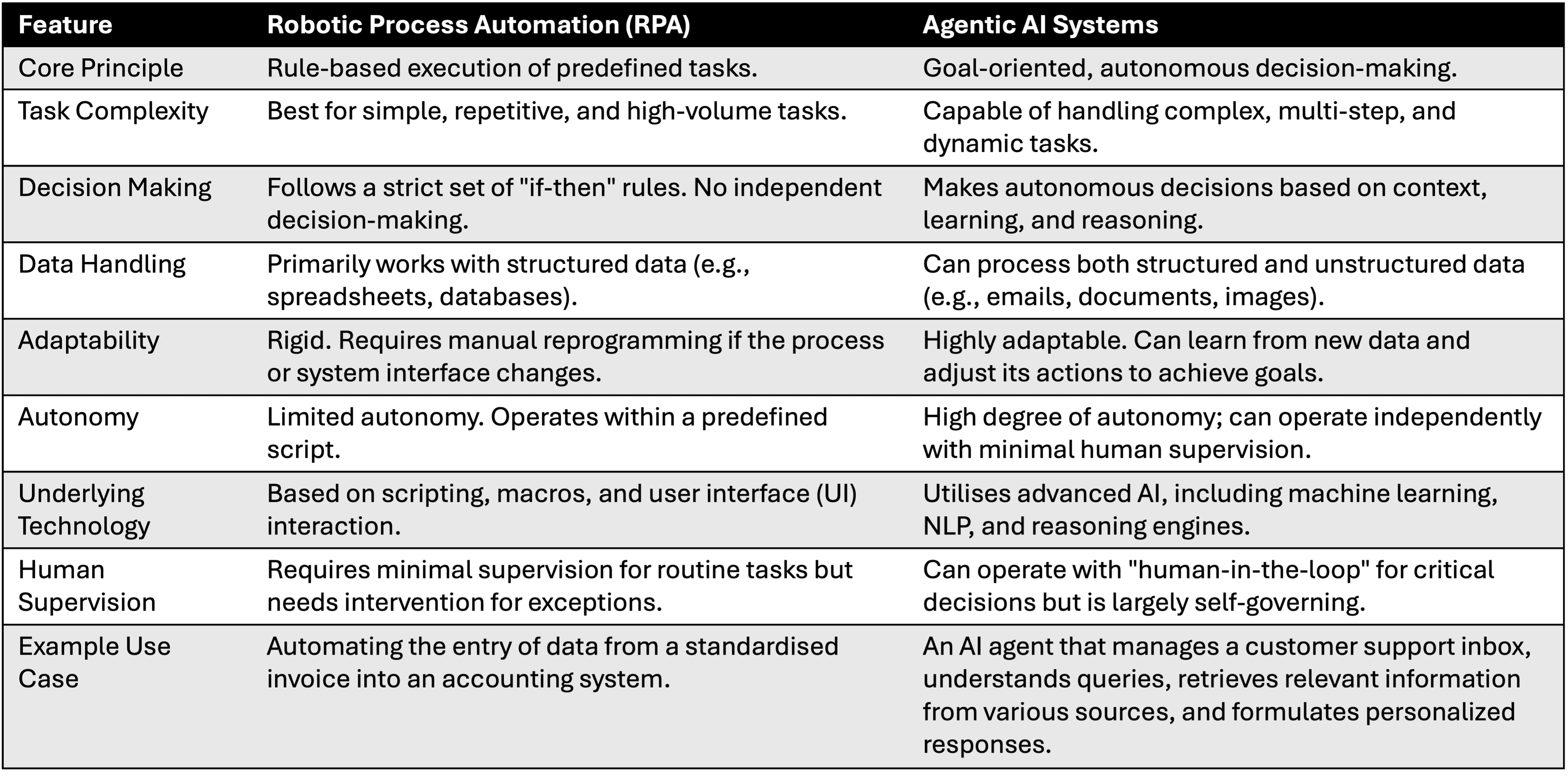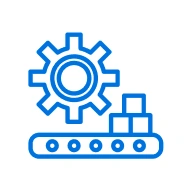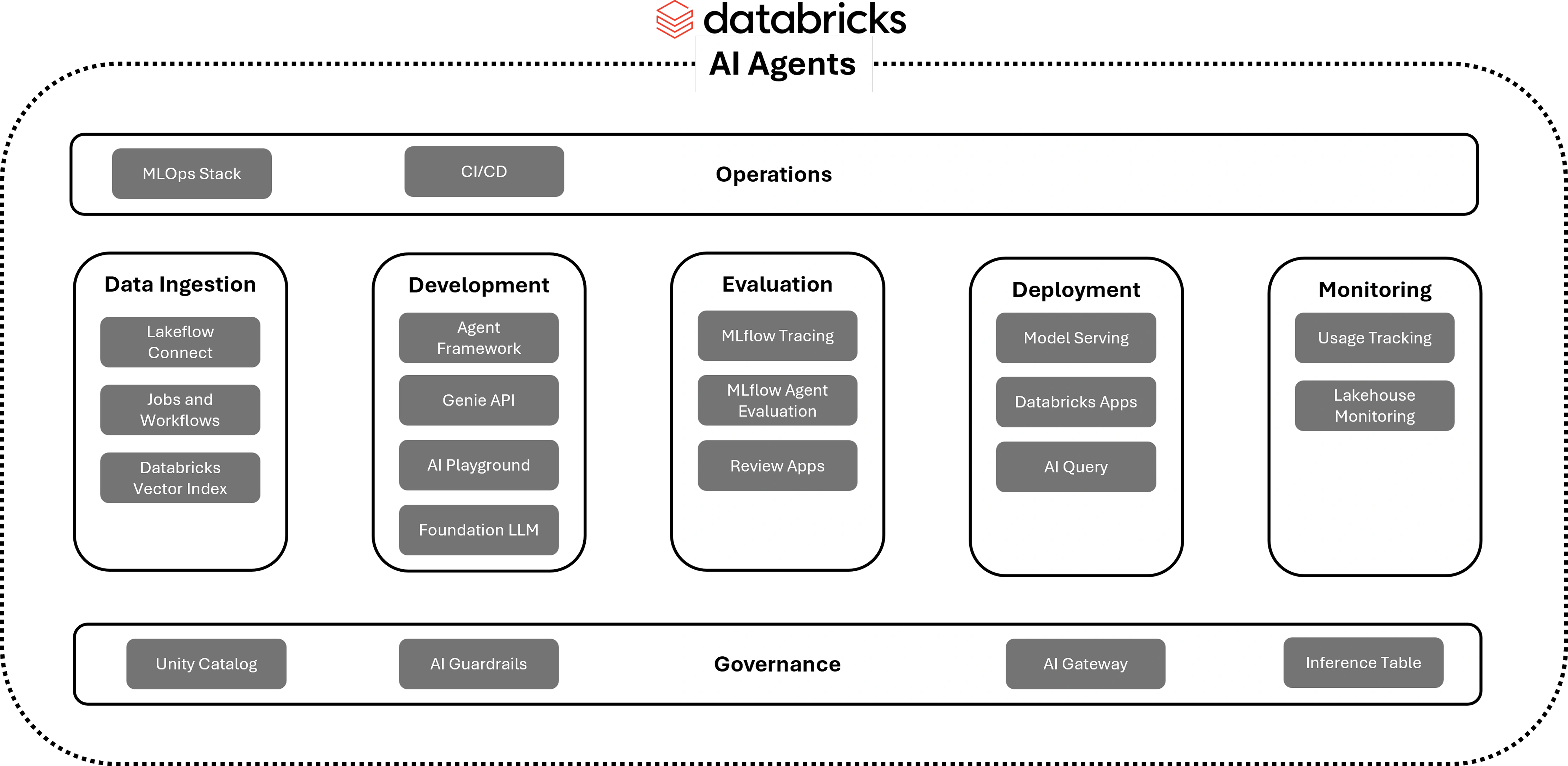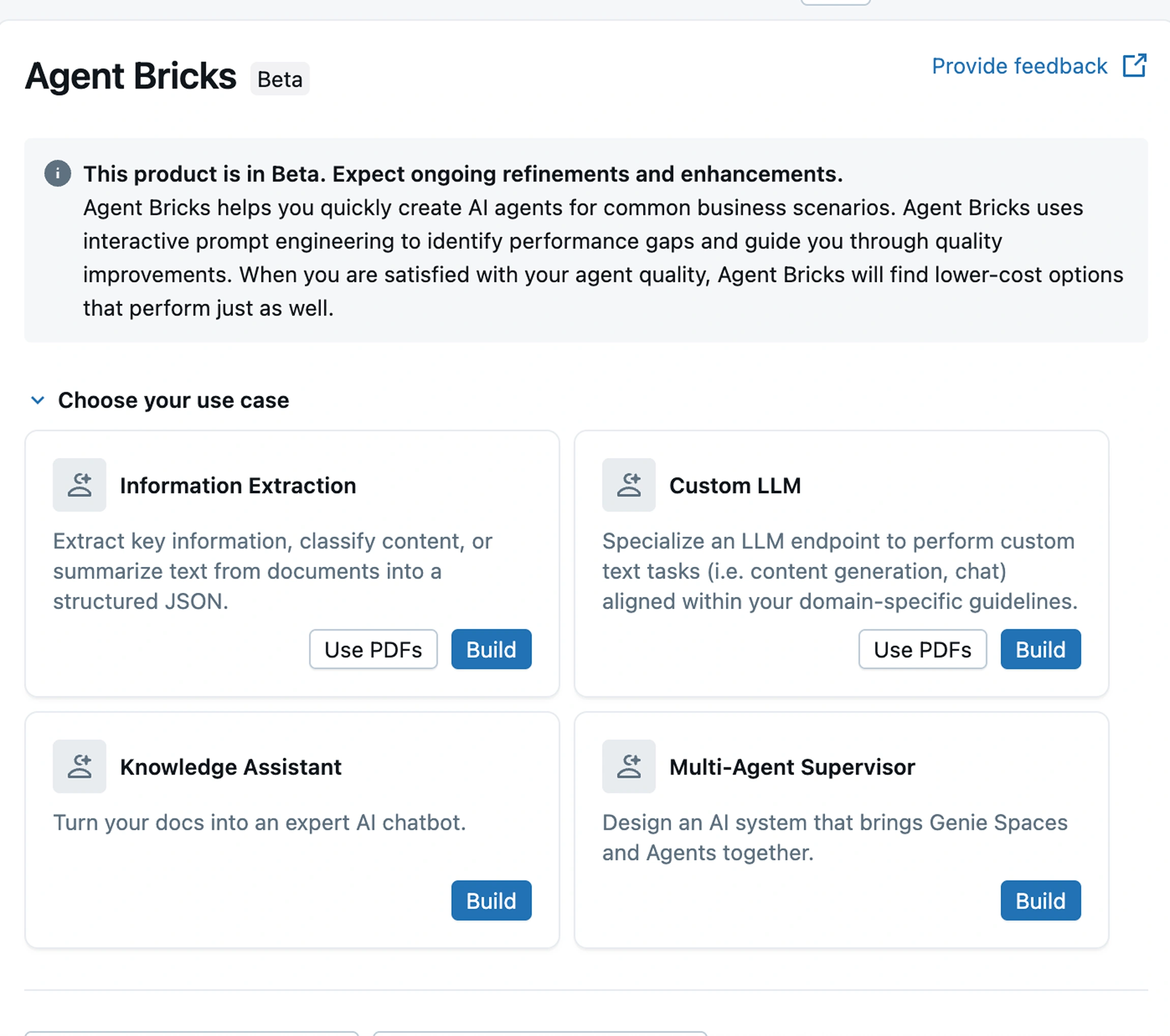Agentic AI in Industry


Bala Amavasai
CTO for Industry,
Celebal Technologies

Deep Contractor
Senior Consultant and Databricks
RSA, Celebal Technologies

Shivang Ganjoo
AI Lead, Celebal Technologies
What is Agentic AI?
Imagine an AI that does not just follow orders but thinks, adapts and acts like a proactive partner, one that anticipates needs, solves problems, and drives enterprise outcomes with minimal oversight. This is Agentic AI. It is a groundbreaking evolution in artificial intelligence where systems operate not as passive tools but as autonomous agents capable of independent decision-making and goal-oriented action.
Agentic AI systems represent a paradigm shift, characterised by:
- Autonomous Decision-Making: Unlike rule-based systems, agentic AI can perceive its environment, analyse real-time data, prioritise goals, and make independent decisions to navigate dynamic and uncertain conditions.
- Dynamic Task Decomposition: It can break down complex, high-level objectives into smaller, manageable sub-tasks and dynamically allocate them, even across multiple specialised agents.
- Persistent Memory and Learning: Agentic systems learn from experience, continuously refining their strategies and improving performance over time, adapting to new scenarios and unforeseen challenges.
- Multi-Agent Collaboration: Multiple specialised agents can coordinate, communicate, and collaborate to achieve overarching enterprise goals, fostering a new level of orchestrated autonomy.
Unlike traditional AI, which often relies on explicit, step-by-step instructions or is designed for narrow, task-specific automation, Agentic AI systems perceive their environments (which can be digital ecosystems or even physical spaces) and dynamically chart their course. They analyse real-time data, prioritise objectives, and execute tasks while navigating uncertainties, much like a skilled human delegate.
But these advanced systems go further: they learn from experience, refine strategies mid-mission, and can be composed of multiple, specialised agents that coordinate, communicate, and dynamically allocate sub-tasks to collaboratively achieve complex, high-level objectives. This allows Agentic AI to offer flexible, adaptive, and collaborative intelligence that exceeds the operational limits of individual, more isolated agents.
Agentic AI Systems

Autonomous Decision Making
- Perceives the environment
- Prioritises goals
- Analyses data in real-time
- Makes independent decisions
- Navigates Uncertainty

Dynamic Task Decomposition
- Break down complex objectives
- Creates manageable sub-tasks
- Dynamically allocates tasks
- Coordinates specialised agents

Persistent Memory and Learning
- Learns from experience
- Refines strategies
- Adapts to new challenges
- Improves performance over time

Multi-agent Collaboration
- Agent coordination
- Cross-agent communication
- Collaborative problem solving
- Orchestrated autonomy
- Achieves enterprise goals
Figure 1. Agentic AI systems add significant benefit over single isolated agents.
Aren’t Agentic AI Systems Just Glorified RPA?
We are often asked the question about what differentiates Agentic AI to Robotic Process Automation (RPA). It is easy to mistake Agentic AI for a more sophisticated version of RPA, as both involve task automation. However, this comparison misses the fundamental leap in capability that Agentic AI represents.
RPA agents are typically designed to execute predefined, rule-based scripts for repetitive tasks, essentially mimicking human interaction with digital systems in a structured way. They follow explicit, step-by-step instructions for narrow, task-specific automation. In contrast, Agentic AI does not just follow orders/ As previously stated, it thinks, adapts, and acts like a proactive partner, capable of independent decision-making and dynamically charting its course by perceiving its environment. This is a move towards orchestrated autonomy, a significant departure from RPA's more rigid automation.
Furthermore, Agentic AI distinguishes itself through its advanced cognitive functions and operational scope, which are far beyond glorified RPA. While RPA excels at automating stable processes, it often struggles with variability or tasks requiring nuanced judgment. Agentic AI systems, however, learn from experience, refine strategies mid-mission, and can be composed of multiple, specialised agents that coordinate, communicate, and dynamically allocate sub-tasks to collaboratively achieve complex, high-level objectives.

Table 1. RPA vs Agentic AI Systems.
Benefits of Agentic AI for enterprises
Agentic AI systems are rapidly moving from theory to practical application across industries, fundamentally changing core business operations. Instead of just analysing data, these systems act as autonomous decision-makers. Agentic AI systems are capable of tackling multifaceted goals and adapting to changing circumstances in ways that RPA cannot. It's this capacity for orchestrated autonomy and collaborative intelligence that positions Agentic AI as a paradigm shift, not merely an incremental improvement on existing automation tools.

Manufacturing
- Predictive Maintenance Actions. Autonomously prescribes and schedules repairs, orders replacement parts, and adjusts production lines to avoid downtime.
- Quality Control. Autonomously rejects defective products and recalibrates machinery settings to eliminate defects in real-time.
- Supply Chain Optimisation. Dynamically re-routes shipments and triggers automatic reordering of raw materials based on demand signals.

Energy & Utilities
- Smart Grid Management. Redirects power flows autonomously to balance loads and activates backup renewable sources during outages.
- Predictive Infrastructure Monitoring and Actions. Shuts down compromised pipeline sections and schedules engineering crews automatically upon detecting critical anomalies.
- Carbon Footprint Reduction. Switches energy sources in real-time (e.g., solar to battery) to minimise emissions without human input.

Retail & Consumer Goods
- Hyper-Personalization. Auto-generates and deploys tailored promotions (e.g., discounts, ads) and personalised imagery for individual customers in real-time.
- Demand Forecasting Actions. Automatically places bulk orders with suppliers and adjusts pricing dynamically based on predicted demand.
- AI-Driven Customer Service. Autonomously processes returns/refunds and initiates replacements without human approval by validating claims via image/video analysis.

Financial Services
- Fraud Detection Actions. Freezes accounts and blocks transactions instantly upon identifying suspicious activity, while notifying regulators.
- Algorithmic Trading. Autonomously executes high-frequency trades across global markets using real-time data, risk parameters and information sources.
- Personalised Wealth Management. Rebalances portfolios automatically based on market shifts and client risk tolerance, with no manual oversight.

Healthcare & Life Sciences
- Drug Discovery. Automates lab experiments (via robotic systems) and prioritises molecules for synthesis based on simulated outcomes.
- Personalised Medicine. Adjusts medication dosages in real-time via connected devices (e.g., smart inhalers) using patient biomarker and physiological data.
- Remote Patient Monitoring. Dispatch emergency responders and alert care teams immediately upon detecting life-threatening anomalies (e.g., cardiac arrest).

Media & Entertainment
- Content Generation. Publishes AI-created articles/videos/images autonomously across platforms after validating alignment with brand guidelines.
- Audience Engagement. Dynamically alters streaming content (e.g., swaps ads or episodes) based on real-time viewer engagement metrics.
- Real-Time Analytics and Actions. Triggers live event adjustments (e.g., camera angles, lighting) during broadcasts using audience sentiment analysis.
Figure 2. The use cases for Agentic AI in Industry are extensive. They either elevate existing use cases or drive new use cases.
In manufacturing, agentic AI systems are running predictive maintenance to schedule repairs before equipment fails, and in financial services, they execute fraud detection by instantly freezing suspicious accounts. This capability allows businesses to proactively solve problems and manage complex tasks like optimising supply chains or discovering new drugs in life sciences without requiring constant human intervention.
The true advantage of these systems is their ability to process real-time data and react dynamically to changing conditions. In retail and consumer goods, an AI agent can analyse market trends to automatically adjust product pricing and launch personalised marketing campaigns to individual customers. Similarly, in the energy sector, agents manage the smart grid by rerouting power to prevent outages during demand spikes.
This creates a new level of operational efficiency and resilience, enabling businesses to adapt instantly to threats and opportunities, ultimately enhancing safety and the customer experience.
Building, Deploying and Maintaining AI Agents on Databricks
Modern platforms like Databricks offers a comprehensive, end-to-end MLOps framework for building, deploying, and maintaining AI agents. The core process flows through five key stages: Data Ingestion, Development, Evaluation, Deployment, and Monitoring. This lifecycle is supported by a foundational Governanace layer, which includes Unity Catalog, AI Guardrails, and AI Gateway to ensure security and control, and is streamlined by an overarching Operations layer that handles CI/CD and the MLOps stack. Essentially, it shows how Databricks provides an integrated environment to manage the entire AI agent lifecycle, from preparing data with Vector Index to developing with foundation models, evaluating with MLflow, serving models, and monitoring their performance in production.

Figure 3. Building, deploying and maintaining AI Agents on Databricks.

Figure 4. Agent Bricks on Databricks offers a new approach to building AI agents that automates the creation of high-performing, domain-specific agents. Image courtesy of Databricks.
The Future is Agentic
The industry is entering an era where AI evolves from a reactive assistant to a co-pilot for innovation. By blending advanced reasoning, adaptive learning, and purposeful action, Agentic AI does not just augment human capability. Instead, it redefines what is possible. As these systems become more sophisticated, they promise to revolutionise industries, democratise expertise, and tackle challenges on a scale and speed that surpass human capabilities.
The question is not if Agentic AI will reshape our world, but how can we harness its potential responsibly? One thing is clear: autonomy is no longer science fiction. It is the next frontier of intelligence.
Ready to learn and deploy Agentic AI systems in your organisation?
 Discover how Agentic AI systems are empowering your industry.
Discover how Agentic AI systems are empowering your industry. Partner with Celebal Technologies to identify use cases that have been delivered to customers globally.
Partner with Celebal Technologies to identify use cases that have been delivered to customers globally. Deploy Agentic AI Systems with confidence on Databricks.
Deploy Agentic AI Systems with confidence on Databricks.





